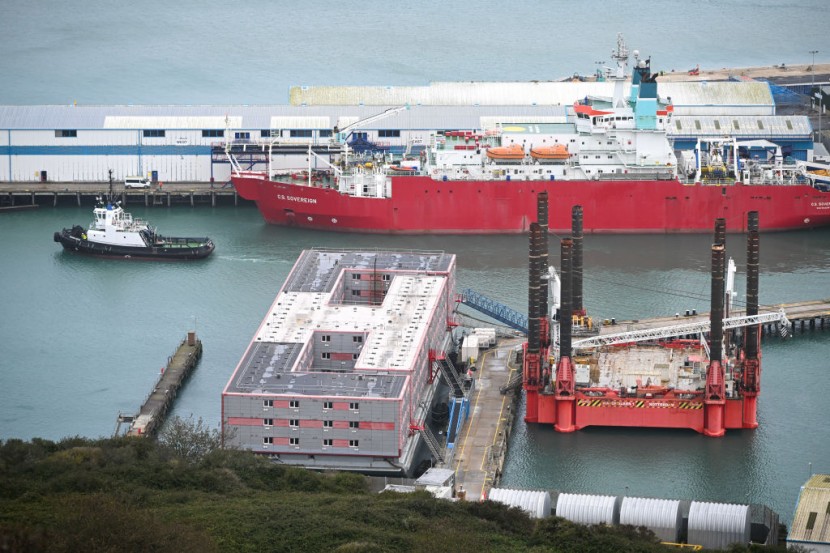
An unspecified group of migrants have returned to the Bibby Stockholm, an accommodation barge that was infected with Legionnaires' disease two months ago.
The BBC reported that a bus carrying the migrants arrived at the port of Portland in Dorset on Thursday afternoon (October 19).
The Home Office said the barge, which has a capacity for up to 500 men awaiting the outcome of their asylum applications, was now "safe and secure" after Legionella bacteria was found in the water supply.
Legionella bacteria can cause Legionnaires disease - a type of pneumonia.
The British government said that, like what other European countries were already doing, using vessels as alternative accommodation would be of "better value for British taxpayers and more manageable for communities than costly hotels."
Read Also : British Prime Minister Visits Israel After Promising To Keep Jewish People Safe Amid Conflict
Protesters Against Barge, But Welcomes Refugees
About 30 people gathered at the port gates to protest the relocation of asylum seekers back into the barge.
Stand Up To Racism Dorset's Candy Udwin said she had been in contact with some asylum seekers who had been staying in the Bibby Stockholm.
"They hate it, they say it feels like a prison," she said, "some hate being on the sea, they find it very difficult to leave and they are completely separated from the community."
A letter was also sent to asylum seekers confirming their re-embarkation and reiterated that all asylum accommodation continued to be offered on a "no-choice basis."
The move came after local councilor Carralyn Parkes lost a High Court fight with Home Secretary Suella Braverman over the lawfulness of housing asylum seekers on the ship.
Asylum Seekers Hate Being on the Bibby Stockholm
Meanwhile, an asylum speaker told the BBC on the condition of anonymity that asylum application had been a "difficult" process as he had not seen his family for nine months, but said being in a hotel had felt "free."
"It feels scary," he said. "We have been living happily in the community."
The asylum seeker also said that he was also worried that, if the barge was crowded to full capacity, there would be a high chance of everyone aboard getting sick very quickly.
"I lived there for five days and have experience on the barge and that's why I am not happy to go back," he added. "In the hotel, we are free to come and go at any time, we are free, and [on the barge] we are bound to something - it's like a prison. It is difficult for all of us and many have said they don't want to go back."
© 2025 HNGN, All rights reserved. Do not reproduce without permission.








